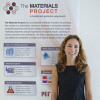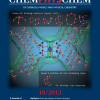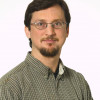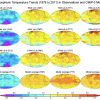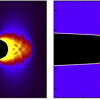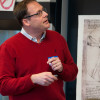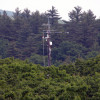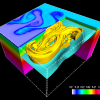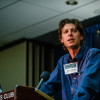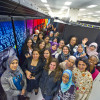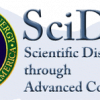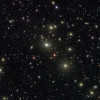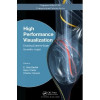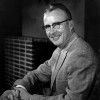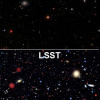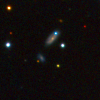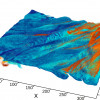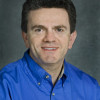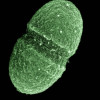News Center
Computational Researchers Help Develop Next-Gen Batteries
As part of DOE's new Batteries and Energy Storage Hub, NERSC and CRD expertise will be leveraged to predict the properties of electrolytes. When JCESR is up and running, collaborators will be able to combine these results with the existing Materials Project database to get a complete scope of battery components. Read More »
Wes Bethel is ACM Distinguished Scientist
Wes Bethel, leader of the Visualization Group in the Computational Research Division, has been named an ACM Distinguished Scientist. Read More »
Novel Tools and a Pharmaceutical Screening Strategy to Capture CO2
One of the major challenges to using zeolites for CO2 capture is identifying the right porous structures to effectively do the job. But novel tools developed by Berkeley Lab computational researchers, combined with an informatics screening strategy inspired by the pharmaceutical industry, is making this search a lot easier. Read More »
John Shalf Named Chief Technology Officer for NERSC
John Shalf has been named the Chief Technology Officer of the National Energy Research Scientific Computing (NERSC) Division at Lawrence Berkeley National Laboratory (Berkeley Lab). Shalf will also continue to serve in his current role as head of the Computer and Data Sciences Department in Berkeley Lab’s Computational Research Division (CRD). Read More »
Climate Change Study Strengthens Link to Human Activities
New research shows some of the clearest evidence yet of a discernible human influence on atmospheric temperature. Read More »
Modeling the Breaking Points of Metallic Glasses
Christopher Rycroft of Berkeley Lab’s Computational Research Division has developed some novel computational techniques to address why metallic glass alloys, or liquid metals, have such wildly different toughness and breaking points, depending on how they are made. Read More »
CRD and Berkeley Lab Staff Speak at Albany High School's Career Day
Dan Martin and Peter Nugent of Berkeley Lab's Computational Research Division, were among a group of 40 speakers who discussed their work and career paths at Albany High School's annual Career Day on Wednesday, Nov. 14. Read More »
Department of Energy's Investment Ensures AmeriFlux Data for All
Twenty years ago, researchers began installing sensors in a variety of ecosystems to study how carbon dioxide cycles through the environment. Today, these sensors have been deployed at 120 locations across the Americas. Because the Department of Energy recognizes that these datasets could benefit a variety of scientific communities, it is funding an effort to make this data accessible to a wide-range of researchers. Read More »
Visualizing Oil Dispersion
Using visualization software developed for the fusion energy research community by computer scientists at Berkeley Lab, oceanographers found that they needed to factor in the interactions between deep, middle and surface ocean currents to successfully track pollutant dispersion in the Gulf of Mexico. Read More »
CRD’s Sean Peisert Shares Cyber Security Expertise at I3P Meeting
Sean Peisert, a research scientist in Berkeley Lab's Computational Research Division, recently gave a presentation talk at the 10th Anniversary of the Institute for Information Infrastructure Protection (I3P), held Oct. 10 at the National Press Club in Washington, D.C. Peisert discussed the impact of I3P,s a consortium of leading universities, national laboratories and nonprofit institutions dedicated to strengthening the cyber infrastructure of the United States. Read More »
State Department’s TechWomen 2012 Visit Berkeley Lab
Berkeley Lab researchers in the Computational Research, Physics and Physical Biosciences Divisions also hosted three TechWomen—from Algeria, Lebanon and Tunisia—during the month of September. Launched by Secretary of State Hillary Rodham Clinton in 2011, TechWomen is an international exchange that uses technology as a means to empower women and girls in the Middle East and North Africa. Read More »
Berkeley Lab Helps Develop Software for Exascale Supercomputers
Expected to become available by the end of this decade, exascale supercomputers will be 1,000 times faster than today’s petascale machines. To address the challenge of developing a software stack for exascale systems, the U.S. Department of Energy is funding a number of research efforts under the X-Stack program. Computer scientists in the Computing Sciences organization at Berkeley Lab will contribute their expertise to three X-Stack projects. Read More »
Berkeley Lab Scientists to Lead, Support 14 New SciDAC Projects
When the Department of Energy announced the series of projects under the latest Scientific Discovery through Advanced Computing (SciDAC) program, Berkeley Lab scientists, mathematicians and computer scientists were listed as key contributors in three institutes and 11 science application partnerships. Funding for the projects is expected to total about $6 million annually over the next three to five years. Read More »
“Flying Through the Known Universe” Screens at 3D Film Festival in L.A.
A 3D movie flight through hundreds of thousands of galaxies at considerably faster than the speed of light has its world-premiere screening at the 3D Film Festival this Thursday, Sept. 20. Read More »
CRD Researchers Edit Book on High Performance Visualization
Wes Bethel and Hank Childs of CRD, along with Charles Hansen of the University of Utah, have edited the book High Performance Visualization: Enabling Extreme-Scale Scientific Insight. he book focuses on algorithm design, implementation, and optimization for visualization and analysis tools on emerging multi- and many-core platforms. Read More »
Now Accepting Applications for Alvarez Fellowship!
Apply now for the Luis W. Alvarez Postdoctoral Fellowship in Computational Science, sponsored by Lawrence Berkeley National Laboratory’s Computing Sciences Directorate. Researchers in computer science, applied mathematics or any computational science discipline who have received their Ph.D. within the last three years are encouraged to apply. The successful applicant will receive a competitive salary and excellent benefits.
Read More »
Berkeley Lab Computational Scientists to Help Illuminate Dark Universe
Aiming at illuminating the 95 percent of the universe known as dark matter and dark energy, researchers in Berkeley Lab’s Computational Research Division are working to boost the success of next-generation cosmology experiments. Read More »
Financial Firms Support CIFT’s Assessment of HRC Role in Market Stability
CIFT has received $100,000 in research donations to study and promote the use of leading edge supercomputing and data intensive science for improving stability, regulation, and enforcement in U.S. markets. Read More »
Supernovae of the Same Brightness, Cut from Different Cosmic Cloth
The Palomar Transient Factory team, including researchers from CRD's Computational Cosmology Center, presents the first-ever direct observations of a Type 1a supernova progenitor system. Read More »
Bringing The Review of Particle Physics Online
Scientists from the international Particle Data Group teamed up with computer engineers in CRD's Advanced Computing for Sciences Department to develop a web-based workflow system and an interactive online version of The Review of Particle Physics. Read More »
Julian Borrill Unveils Cambridge’s Cosmology Supercomputer
Julian Borrill, co-leader of the Computational Cosmology Center in the Computational Research Division, gave an invited talk at the Numerical Cosmology 2012 conference held July 17-20 in Cambridge, England, and also chaired the session in which the university’s new supercomputer was officially launched. Read More »
Sifting Through a Trillion Electrons
Using tools developed by Berkeley Lab Computational Research, astrophyscists were able to mine a trillion-particle 3D magnetic reconnection dataset in about three seconds, and visualize the results for analysis. Each time-step of this simulation is a massive 32 terabyte file, this is the first time a dataset of this magnitude has been queried and visualized so quickly. Read More »
Erich Strohmaier and the TOP500: A list that’s taken on a life of its own
In June 2012, Erich Strohmaier will present the 39th edition of the TOP500 list during the opening session of the International Supercomputing Conference in Hamburg, Germany. This profile tracks the beginning of the list and Strohmaier's career. Read More »
Berkeley Lab Scientists Help Define the Healthy Human Microbiome
The human microbiome’s exact function, good and bad, is poorly understood. But that could all change now that the normal microbial make-up of healthy humans has been mapped for the first time with help from Berkeley Lab's Computational Sciences Division. Read More »
Hank Childs Wins 2012 DOE Early Career Award
Hank Childs of the Computational Research Division’s Visualization Group has been honored with a 2012 Department of Energy Early Career Award. Read More »









